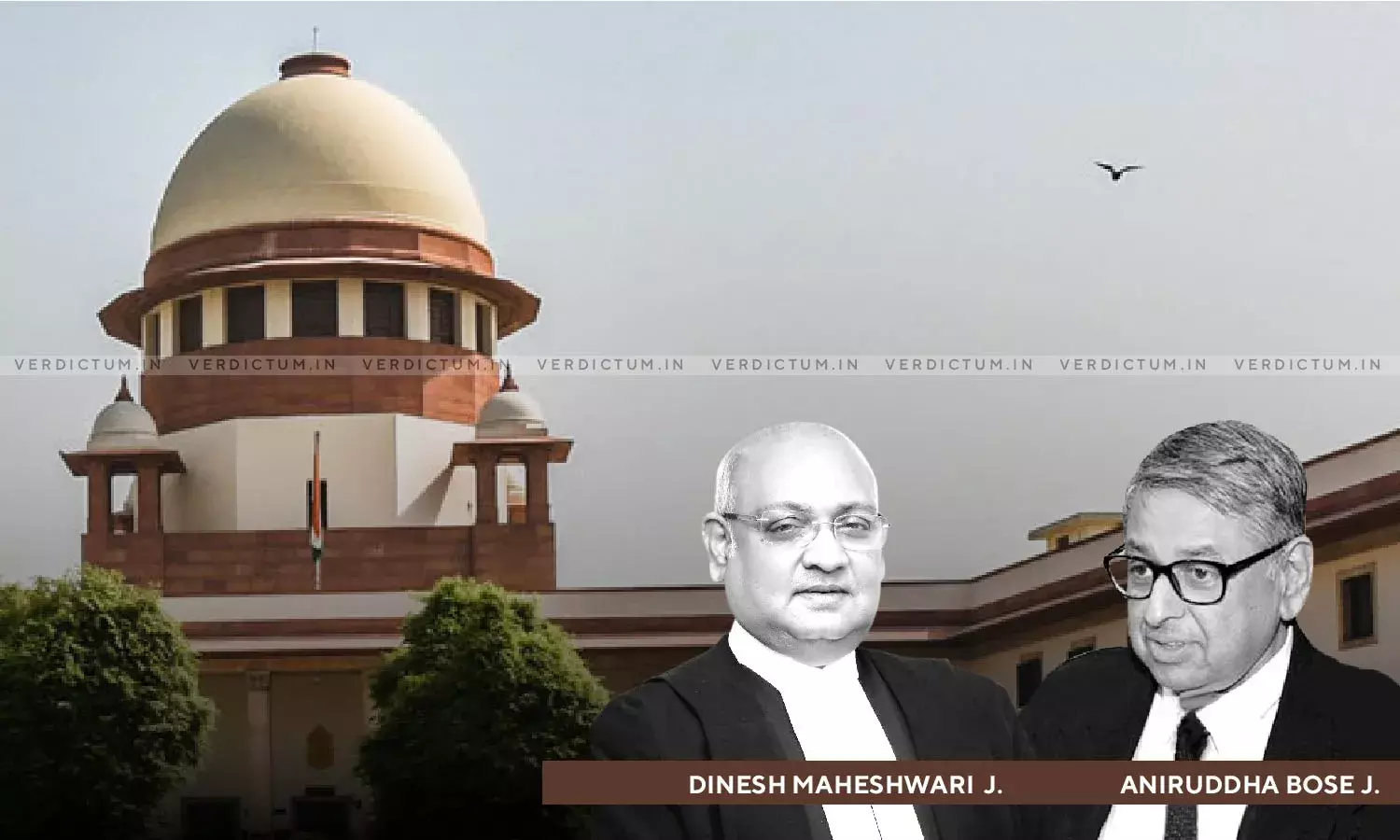Auction Purchaser Is Justified In Assuming That Taxes & Liability Post Liquidation Of Wound-Up Company Is Not Recoverable From Him: SC

The cryptic terms and conditions of sale in the present case, wanting in material stipulations, never obliged a purchaser to carry out a search as regards encumbrances, observed the Supreme Court recently while deciding on the question of obligation of purchaser vis-à-vis official liquidator towards post liquidation liability of a wound-up company.
While referring to the Proviso to Section 185 of the Madhya Pradesh Municipal Corporation Act, 1956 which provides that no arrears of any such tax would be recoverable from any occupier who is not the owner, if such arrears were for a period during which the occupier was not in occupation, a Two Judge Bench of Justice Dinesh Maheshwari and Justice Aniruddha Bose opined that "the bidder/purchaser is entitled to proceed on the assumption that even if there were any arrears of such taxes under the M.P. Act of 1956, the same would not be recoverable from him".
Advocate Rupali Samanta Ghosh appeared for the Appellant, whereas Advocates Pratibha Jain, P.N Gupta and Sunil Roy appeared for the Respondent.
Going by the background of the case, the company IISCO Ujjain Pipe and Foundry Company Limited, became sick and was referred to the Board for Industrial and Financial Reconstruction (BIFR) under the provisions of Sick Industrial Companies (Special Provisions) Act, 1956. On the recommendation of BIFR, the company was ordered to be wound up. Pursuant thereto, the Appellant was appointed as the Official Liquidator and was directed to take over possession of the assets of the company in liquidation.
Accordingly, the assets of the company in liquidation were put up for sale on “as is where is whatever there is” basis by means of sale notice. As per the sale notice, the tenderers were to satisfy themselves after physical inspection of the assets of the company and the purchasers would be deemed to offer with full knowledge as to defects, if any, in the description, quality or quantity of the assets sold.
Later, the assets were sold to one Nagendra Jain for a sum of Rs. 20.50 crore but the third Respondent was nominated in the place as purchaser of the assets. After the sale, the Appellant invited claims from the creditors by way of advertisements. In response, the first Respondent (Nigam) filed proof of debt claiming towards arrears of property tax as well as water tax for the factory and staff quarters of the company in liquidation at Ujjain. The Appellant however, admitted two claims only to the extent of pre-liquidation period, and rejected other claims on the ground that they arose after the date of order of winding up. On the issue regards admissibility of post-liquidation claims, the Company Court held that liability of the Appellant was not restricted to the claims and debts only until the date of order of winding up.
The High Court also confirmed the findings of the Company Court, and observed that the auction purchaser was not liable to pay the charges accrued post-liquidation because it could not be discerned that the purchaser was put to notice about any liability towards arrears due to the Nigam. Hence, present appeals.
After considering the pleadings, the Apex Court found that expansive technical expressions were used in the present case by the Appellant in the terms & conditions of the sale that the same would be on “as is where is whatever there is” basis and then, further disclaimer was stated that the Appellant was not providing any guarantee as to the quality, quantity or specification of the assets sold.
“Such stipulations and disclaimers were definitely putting the purchasers to notice to get themselves acquainted with what the property is (the nature and extent); where the property is (the locational attributes); and whatever there is (quantity and condition of the property). The bidders/purchasers were further warned to satisfy themselves in regard to the aspects of nature, extent, location, quantity, and quality after physical inspection of the assets and were also informed that they would be deemed to offer with full knowledge as to defects, if any, in the description, quality or quantity of the assets sold”, added the Court.
The Bench therefore clarified that all such stipulations were essentially pertaining to the physical attributes of the assets in question but, the significant omission in those terms and conditions had been to make it obligatory on the bidder/purchaser to make himself aware about encumbrances, liens and claims attached to the assets in question.
Finding that provisions of the M.P. Act of 1956 were not creating any such encumbrance or charge on the property which would attach to the property for all times and under all circumstances nor they could be said to constitute any encumbrances which diminish the value of the property, the Apex Court accepted the argument of the Respondent that in absence of any statutory provision, the auction purchaser without notice of any charge could not be made liable for the arrears of tax in question during the post-liquidation period.
Accordingly, the Apex Court dismissed the appeal and upheld the reasoning of the High Court that arrears of property tax and water tax until the date of confirmation of sale in the present case would qualify as the expenses for “preserving, realizing or getting in” the assets of the company and thus, shall have to be paid in priority by the Appellant.
Cause title: Official Liquidator v. Ujjain Nagar Palika Nigam and Ors.
Click here to read / download Judgment

